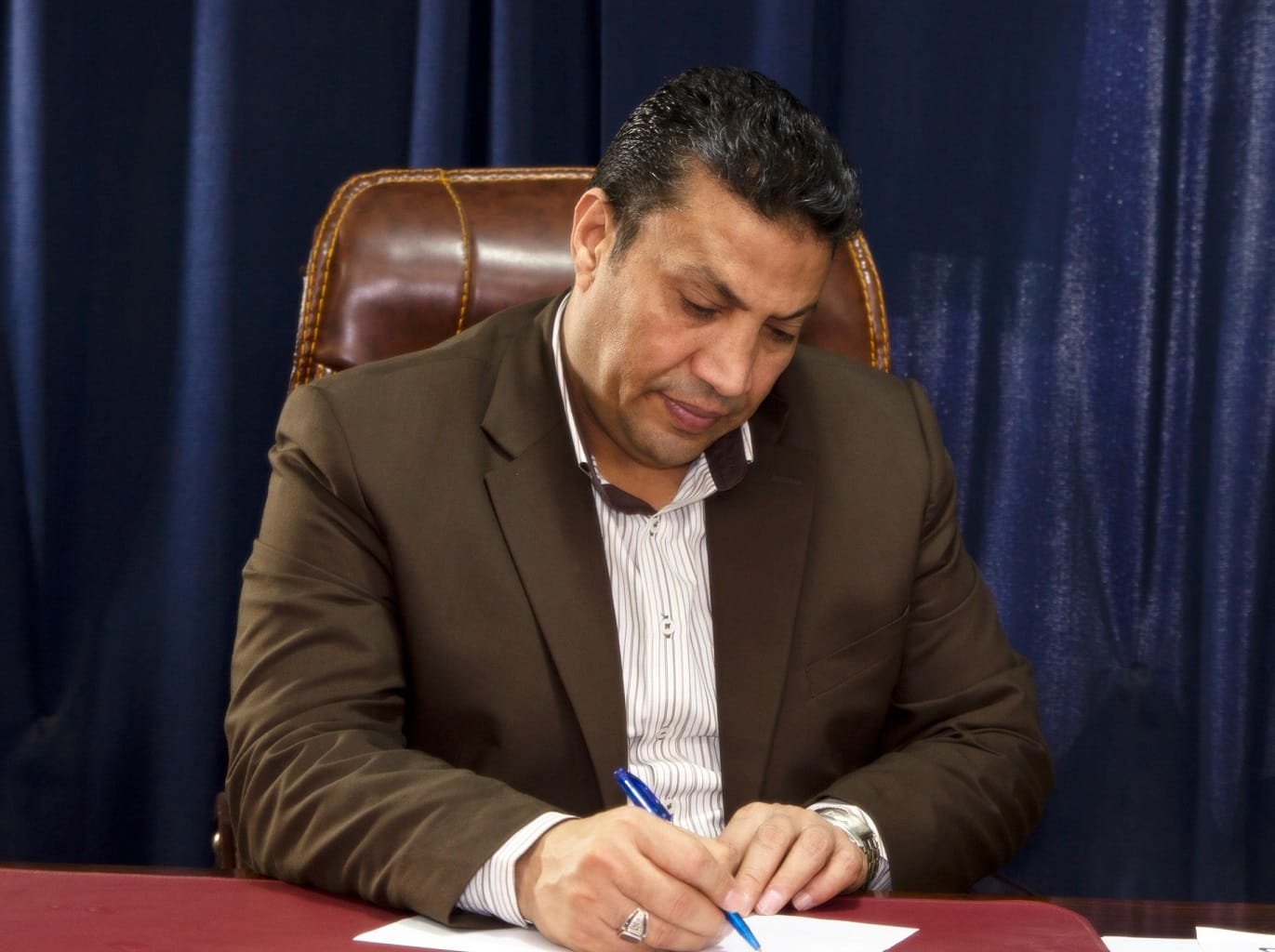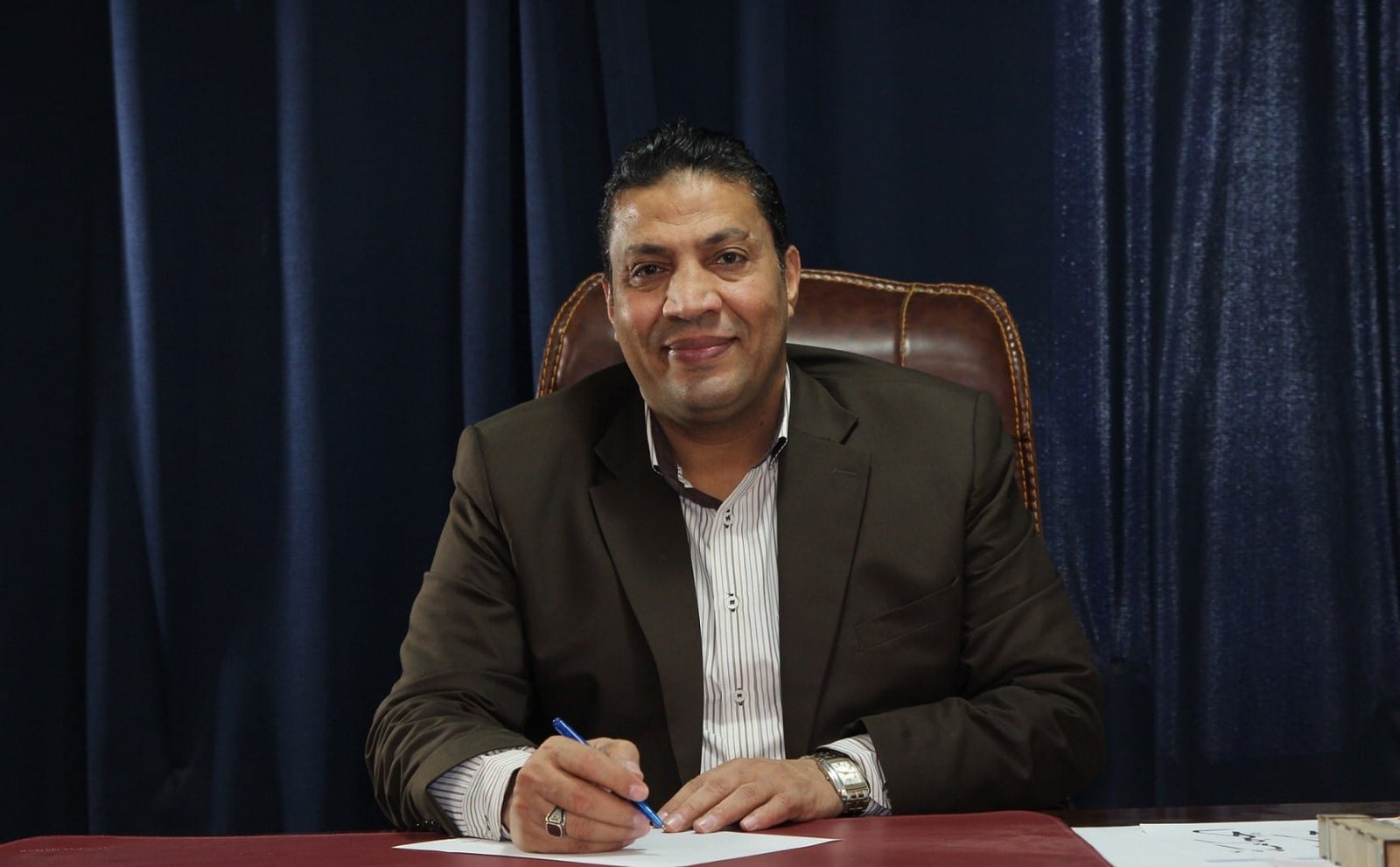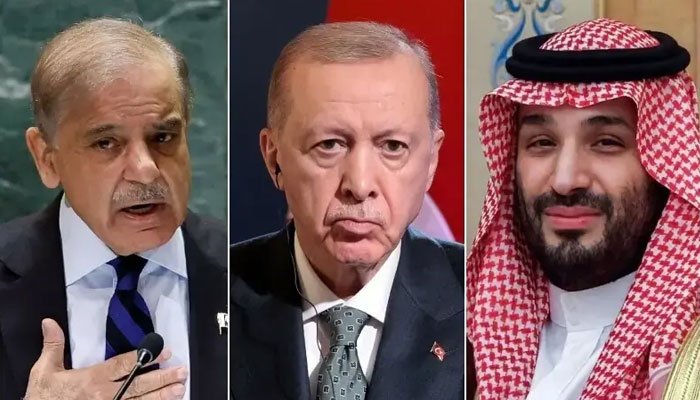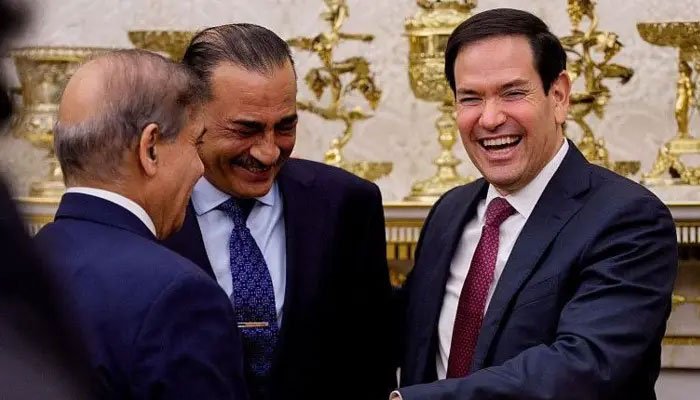Dr. Kamal Boraiqa Abdelsalam Hassan is an Assistant Professor at Al Azhar University and currently deputed in International Islamic University Islamabad. He has remained a General Coordinator of Al-Azhar Center for Interfaith and Intercultural Dialogue. He was also a Member of the African Union Interfaith Forum.
He is an Expert on Interfaith Harmony, Extremism and Radicalization. He teaches and promotes the non-violent and actual teachings of Islam by sharing his learning and understanding of Quran and Sunnah.
Dr. Kamal Hassan has graciously accepted to speak to Frontier Media and share his views on current challenges of Islamic Ummah.
Jihad can only be announced by an Islamic Ruler: Dr. Kamal emphasizes the importance of understanding the concept of Jihad. He tries to interpret the Quranic verses while referring the exact context to provide clarity of concept.
Dr. Kamal Boraiqa Abdelsalam Hassan touches several other aligned issues. So, we bring our questions and his answers below:
The National Frontier: How would you define the subject of comparative religions in today’s world?
Dr. Kamal Boraiqa Abdelsalam Hassan: Comparative Religion is a branch of the study of religions that is concerned with the scientific and systematic analysis and comparison of beliefs, doctrines, practices, rituals and traditions in world’s religions. This method of study has many advantages, as it leads to a deeper understanding of the basic philosophical concerns of religions, such as ethics, metaphysics, and the nature and form of deliverance of humankind from evil in their quest of truth in this life and life after death.
In fact, the study of religion is an important field of knowledge; it was originated by the Muslim scholars. The first Muslim to write in this field was Abū Muḥammad al-Ḥasan b. Mūsā al-Nawbakhtī the Muslim theologian and philosopher who lived in third century after hijrah. al-Nawbakhtī wrote a magnum opus book entitled al-Ara’ wa al-diyanat (Views and Religions). The book was lost, but it was frequently, quoted by Ibn al-Jawuzi, particularly in his book Talbis Iblis (The Devil’s Deception) and also quoted in the writings of other notable and erudite scholars such as Al-Mas’udi, and Ibn Abi al-Hadid.
Later on, many Muslim scholars wrote important books describing the doctrines and religions of the others guided by the Qur’anic principles of recognition of religious diversity and religious freedom. The list of the authors include a large number of great Muslim scholars whose most of their works have been translated into many European languages such as: Abu Essa Al-Warrq, Abi Al-Hasan Al-Masoudi, Abu Uthman Amr al-Jahiz, Abu Al-Hasan Al-‘Amiri, Ibn Hazm Al-Andulsi, Al-Ghazali, Abu al-Rihan Al-Biruini, Al-Baqalani, Al-Shahrastani, Al-Razi, Al-Qirafi, Ibn Taymiyah and Ibn Al-Qayim The study of religion includes different branches of knowledge such as, History of Religions, Comparative Religions, Sociology of Religion, Comparative Mysticism, and Cosmology of Religion which focuses on the explanation of the origin and development of the universe from a religious perspective.

TNF: How important is understanding and teaching of the study of religion in contemporary times?
Dr. Kamal Hassan: Religion is a universal phenomenon which is very hard to belittle its value or pin down its importance. The study of religion flourishes in the civilized communities that believe in religious freedom and man’s right to choose the belief that is suitable to his mind, conscience, and heart. Anyone who is interested in the history of the world realizes the paramount importance of studying world religions. Another practical consequence of the study of world religions and having a deeper understanding of its context and sources is to protect our students from the danger of terrorism that is considered one of the most awful disasters striking the world nowadays.
Moreover, we will not be able to understand world cultures without knowing the religious backgrounds of these cultures. Major political conflicts that need to be resolved have at its root religious differences in the past and in the present. In the past, we may read pages of the history of conflicts between Catholic Christians and the Protestant, the Crusades against the Muslims, Hindus war against Muslims, Christian-Buddhist wars.
In the present, we see the Jewish occupation of Palestine and the struggle of the Muslims against Zionism. The study of religion and religious value is crucial to the life of the Muslim due to the fact that the Holy Qur’an mentioned various religions known to the Arabs like the theistic religions, the religion the Sabaeans, and Zoroastrianism and guided the Muslim to peacefully coexist with the followers of other religions and taught them that difference of religions should not be a cause of war and conflict.
It also taught the Muslims to use wisdom and good admonition to call others to their religion which entails learning about the religions of the other.
TNF: How would you define the interfaith harmony?
Dr. Kamal Hassan: Interfaith harmony is to learn to peacefully coexist with the followers of other faiths. It is to live and let live. It is to respect people’s choice in this life and to remember that we are all human beings and will be all judged by Allah.
In this context, there are some Quranic principles which is necessary to be highlighted: the first is that we as Muslims have a code of ethics which regulates the Muslims relations with followers of other religions as we learn from the Qur’an that Allah doesn’t forbid us from dealing fairly and kindly with those who have neither fight nor drive us out of our homes.
Secondly recognizing one another is one of the ultimate objectives of our existence on this earth as it was clearly expressed in the Qur’an. Third religious diversity is one of the Almighty Allah’s Universal Laws upon which he has built this universe.

TNF: Can you share your own experiences of working on interfaith harmony?
Dr. Kamal Hassan: I can share some of the lessons that I learned from my experience in interfaith Dialogue; you will not be able to change the beliefs or religions of all people as Allah has destined that we will not cease to differ, however, the society that fails to promote its values will cease to exist, thus we have to respect our differences and respect the choices of the others and at the same time protect our own identity and traditions.
Interfaith Dialogue can diffuse many crises in our world of today which is witnessing increasing political tension and economic conflict, and can lead to cooperation among us to face our difficulties, solve our problems, resolve our conflict and live in peace and prosperity. Dialogue, to the civilized nations is the alternative of internal war and strife.
Another important lesson that we should learn from the Qur’an in Surat Al-Hajj: 40 which referred to human interaction as one of the basic universal laws. This human interaction will not stop till the Day of Judgment.
This law is for the benefit of humankind to build the civilization of the earth and to restrict evil, to help truth to prevail. This law is meant to strike a balance in this universe. Allah says: “If Allah did not repel some people by means of others, many monasteries, churches, synagogues, and mosques, where God’s name is much invoked, would have been destroyed. Allah is sure to help those who help His cause– God is Strong and Mighty “
TNF: How have religious scriptures been historically interpreted and re-interpreted in various cultural contexts?
Dr. Kamal Hassan: Reviewing the narrative of the fanatic and terrorist groups, I discovered that their interpretation of the religious texts is different from the widely accepted exegesis of the Muslim scholars. Terrorism has become a world crisis that befalls most of the world’s nations and peoples irrespective of their religion, ethnicity, race, or nationality. Thus, this phenomenon is not, of course, limited to the Islamic religion, but it is prevalent in all religions without exceptions.
The problem is that they take the text out of context as a pretext. To make this clear, they take the religious texts away from their contexts without giving attention to the rules and methods adopted by the scholars in interpreting and understanding the essence of the text, the intent of the Lawgiver and the wisdom behind them through connecting the text to causes of its revelation. This led to an erroneous understanding of the teachings of their religions that calls for mercy, love, tolerance and peace.
Muslims need to Differentiate between Two Arabic Words: Al-Qital and Qatl. One strengthens and alleviates the person to higher ranks in heaven; while the other may lead them towards huge shame on the Day of Judgement.
A clear example of this is the fanatic groups’ explanation of the verses pertaining to Jihad which commands the Muslims to fight their enemies who are confronting them in the battlefield as a general commandment to kill them at all times even if they are not fighting against the Muslims. They confuse the explanation of two important words in Arabic the first is Al-Qital (fight) which involves engagement of two parties in fighting and Qatl (killing).
Jihad in Islam is originally permitted to Muslims to defend themselves, land, properties, religion and to ensure freedom of belief. It should be announced by an Islamic ruler and after the consultation with the concerned military institutions and the members of the Parliament representing the Ummah. Human life is sacred in Islam; no religion so far as I know allows killing innocent people without just cause.
All religions guarantee the sanctity of human life. However, the religious texts was manipulated and misinterpreted to serve a specific ideology and hidden agenda that has nothing to do with the religion.
TNF: In what ways do religious moral codes align or conflict with secular ethical principles, such as human rights and equality?
Dr. Kamal Hassan: Actually, we learned human rights from the moral codes of the theistic religions. The Magna Carta itself is considered the first Western document defending the equality of all people. It was written six hundred years after the advent of Islam. The approach that the Holy Qur’an adopts in enacting human rights is unique because it provides us with the philosophy and wisdom behind the legislation of these rights.
Man in Islam is seen as God’s vicegerent on earth, the word Khalifa is mentioned to describe man in the Qur’an. This means that God has created man, paved the earth for him, and created everything in this universe and made it subservient to him. God has honored, dignified man and endowed him with the intellect which was a privilege that made man surpasses all creatures. This human dignity is not dropped by committing mistakes.
The story of man’s creation in the Qur’an tells us that Allah created man out of His Breath and commanded the angel to prostrate for him to distinguish him from the rest of the creation. His soul is protected by the Shariah and no one is allowed to violate the sanctity of human soul without due right.

I read the declaration of the human rights and found that it is established on three basic principles: equality, justice and freedom. The corpus of the Islamic law is based on preserving five rights: life, reason (mental state), religion, honor, and wealth which are known as the higher objectives of the Sharih (Maqasid Al-Shari’ah). To this effect we see the second Caliph Umar Ibn al-Khattab responded upon seeing a group of enslaved people: “how is that you have enslaved people when their mothers bore them free?”
TNF: What are the most important concepts of life for a common man as per Islamic teachings?
Dr. Kamal Hassan: There are five rights extended to all people regardless of their religion, race, color, cultural background or orientation. All people from the Islamic perspective have the right to live in peace, no matter how different people are might be from one another. The reason is that human rights in Islam are built on two fundamental principles: Equality of all people and Freedom for all people. Equality of all people in Islam revolves around two major foundations: the mutual origin of all humans. i.e. from our father Adam and mother Eve meaning that all human beings are brothers one to another through this special relationship and two, the mutual nobility of all humans “we have honored the children of Adam” (17: 70).
The right of freedom to choose one’s faith is guaranteed in the Qur’an. It is impossible to force someone to adopt a faith he does not believe in, regardless of whether this religion was revealed from the heavens or man-made religion: “There shall be no compulsion in [acceptance of] the religion” (2:256), and “Whoever wills – let him believe; and whoever wills – let him disbelieve” [18: 29].
As for political rule in Islam, it is built on the principle of justice and mutual consultation, not unilateral power and decision making. The concept of justice is one of the most discussed issues in the Qur’an. So, we can safely conclude answering this question that human rights and equality in modern world is derived from the religion itself and more particularity from the teachings of Islam.
TNF: How do religions approach social issues like poverty, environmental stewardship, and economic justice?
Dr. Kamal Hassan: No religion promotes any commonly accepted poor habit or circumstances. All religions want the man to be healthy, wealthy, content and promoting a better life; not only for themselves but also for others around them. Similarly, Islam does not encourage poverty. It says that the one who gives is better than the one who takes.
However, there are many principles in our religion to enhance inclusive social protection to protect the weak, vulnerable and poor people. We learn from the Qur’an that one of the ultimate objectives of the Shariah is (Emarat Al-Ard) to urbanize, develop and protect the earth and not to spread corruption in the land.
The construction of the civilization requires the protection of its sources and eliminating everything that threaten the existence of man, plants, and animals on earth. Most of the world religions or at least the theistic religions have similar concepts related to bridging the gap between the rich and the poor, protection of the environment and cooperation to solve these universal problems.

TNF: As we see the new digital media evolving and changing perspectives on a daily basis, how do you see its role?
Dr. Kamal Hassan: Media platforms have its negative and positive aspects. You may find some pages which introduce good and useful materials about religions. Yet, sometimes you will find some other platforms enhance atheism and introduce obscene material. While it is not accepted from the viewpoint of our religion or culture. However, I think that the most negative aspects of these platform is that they provided all people with different levels of education and understanding with space to express their views on every matter especially those related to religions.
You will not find common and average people who do not receive systematic education express their view concerning, physics, engineering, astrology or any other scientific field of knowledge, but you will find them express their view on every single religious issues, to the extent that you will feel that the whole community have become Muftis.
This is the reason of the large number of the odd fatwas which we hear from time to time in the Muslim world. It is despite the fact that we have clear injunctions in the Qur’an. It asks the scholars (the people of reminder) who are well- versed in knowledge and have the ability to deduce the ruling from its sources to follow a specific pattern to understand the challenge and respond under specific conditions. Thus, I see the digital media as an opportunity and threat at the same time. Therefore, I urge people to only follow the scholars, muftis or Ullema that they are well aware of and keep reading Quran themselves to gain direct guidance from Allah – the Creator of the Universe.
TNF: How can comparative religion help reduce tensions and misunderstandings between faith groups in multicultural societies?
Dr. Kamal Hassan: Man is the enemy of that which he is ignorant of.
Having knowledge of the other religions, the literature they have developed, their spiritual beliefs, their rituals and practices, the moral values in these religions, will, of course lead to appreciation among the followers of these different religions and respect to their endeavors to reach to the truth.
All of us recognizes the importance of interfaith dialogue in reducing tension and overcoming radicalism. However, interfaith dialogue is not possible without having this kind of knowledge about the other religions. Dialogue that will lead to mutual understanding and peaceful coexistence is one of the practical outcomes of the study of others religions.
You can also watch interview of Dr. Kamal Boraiqa Abdelsalam Hassan on Frontier Media.








